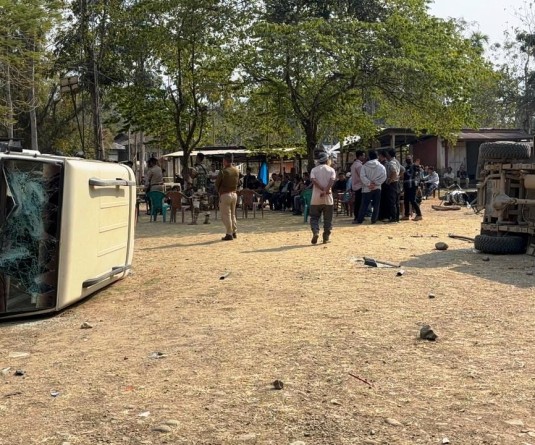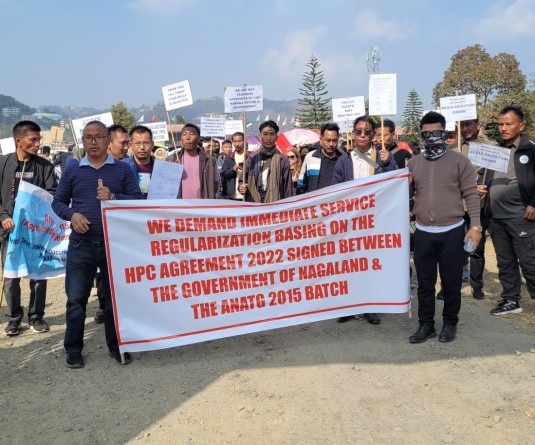
Key measures suggested for transforming Nagaland bureaucracy for efficient good governance
Morung Express News
Dimapur | October 21
In response to The Morung Express Suggestion Platform soliciting “practical and concrete measures for the Nagaland state bureaucracy to become more efficient in the area of good governance,” a number of concerned citizens suggested a set of concrete measures to enhance good governance in Nagaland.
Among the critical issues addressed are the elimination of favoritism in transfer and posting, building public trust, combating corruption, establishing mechanisms for accountability, standardizing administrative experiences, leadership and grooming training and ensuring the autonomy of the bureaucracy.
Ending favoritism in transfer and posting
One of the foremost concerns raised by citizens is the perceived influence of politics in the state’s bureaucracy. To address this, there is a call for a merit based and transparent system for appointment, transfer, and promotion of officers, with strict regulations to eliminate nepotism and favoritism.
“There should be no favoritism in transfer and posting. Some of the officers have never been posted outside of Kohima. How can they make the policies when they have never been posted in the interior places? This is where things are going wrong and must be corrected,” one pointed out.
In similar vein, another said, “One area of the state bureaucracy that has become a big political issue is regarding the transfer of officers. This is also where officers become compromised because they need support of politicians to get a posting of their choice.”
Posting of bureaucrats in Nagaland is the game changer and it spoils and corrupts the bureaucracy in Nagaland. Many officers have never gone to the field since they are only stationed in Kohima. This is creating an imbalance in the quality of officers, another stated.
Need for accountability
The absence of robust accountability mechanisms in the government has been identified as a major concern. Maintaining that check and balance system is missing on the government, a citizen opined, “Unless it is well established, corruption will sneak it and out rendering bureaucratic system and management paralyzed. Secondly, financial payment utility-route should be monitored by enforcement/Anti corruption Agency and accessible by everyone.”
To improve governance in Nagaland, there must be a system of public accountability and social audits, a citizen added. Strengthen the administrative system to actively monitor and deter corruption, discouraging the misuse of public funds for personal gain, another chipped in.
Autonomy of bureaucrats
The pressing need for state bureaucrats to have the autonomy to carry out their duties without undue political influences was also highlighted. Citizens pointed out that legislator’s power should not impede the proper functioning of the bureaucrats and there should be a clear boundary between the political and administrative spheres.
“The legislator’s power should not hamper and jeopardize in the functioning of bureaucracy. Autocratic and arbitrary lines should be limited to make sure the code and working principle of office runs smoothly in people's interest,” a citizen underscored.
Standardizing administrative experiences
There was also suggestion for standardizing administrative experiences so as to ensure a well-rounded understanding of the state’s diverse districts which will allow them to gain comprehensive perspective of the local challenges and needs.
“Ensure administrative officers have a minimum of 2 years of service in each district at the EAC/ADC levels. This will foster a deep understanding of Nagaland's diverse geography and culture and help improve administrative skills as they get promoted to higher levels,” a citizen recommended. In similar lines, another underscored the need for bureaucrats to undergo a cultural sensitivity course, aimed at enhancing their skills in navigating the intricate nuances of tribal affairs.
Building trust, change in mindset
There is a significant trust deficit between the public and the state administration, partially due to the alleged politicization of the bureaucracy and concerns about its integrity, some citizens felt.
“The Naga bureaucracy needs a makeover. There is a big trust deficit and the public do not trust those in the administration. Without trust, the bureaucracy will not be effective and cannot function well. The bureaucracy expects the public to just trust them, but this never works. In fact the bureaucracy needs to change so that the public can restore their faith and trust on them.”
“Mindset of the officers must change. They cannot see their job as entitlements but as public service. Without change in mindset and attitude, there will be no change at all.”
Put in simple words, one said, “Follow all the guidelines given. Be honest and truthful. Don't stoop low to any politician.”
Meanwhile, recommendations were also made on focusing on leadership training and grooming to ensure that the state’s civil servant not only possess the required technical skills but also exhibit strong leadership qualities. This investment is expected to enhance the quality of decision making and foster a culture of innovation within the government.
One opined that the recruitment process must be better. “The recruitment process must look into the quality of officers who have ethics and morals. Just because they pass their NPSC exams does not make them good officers. If governance in Nagaland is to improve the recruitment process cannot rely only on NPSC exams and interviews, there must be other qualities that are far more important than marks.”
“For a more efficient bureaucracy, the solution is simple. Stop the corruption. Serve the public and go where your posting is,” one citizen summed up on the most defining qualities of a bureaucrat.





